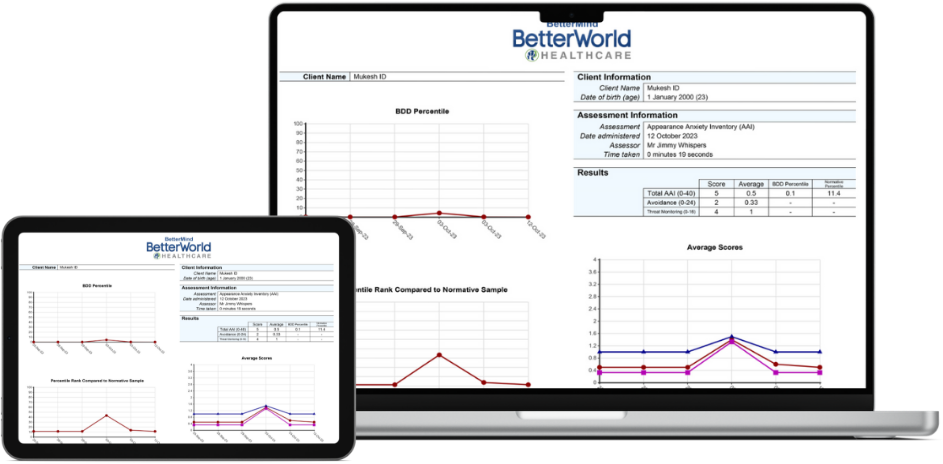Rosenberg Self-Esteem Scale (RSES)
Assessments
Description
The RSES measures self-esteem using ten items answered on a four-point Likert-type scale
– from strongly agree to strongly disagree. The RSES is one of the most widely used measures of self-esteem (Sinclair et al., 2010). Self-esteem is not a unitary construct and has been divided equally to measure two 5-item facets; self-competence and self-liking.
– Self-competence (SC) is understood as one’s instrumental value. Schmitt and Allik (2005) defined self-competence as “feeling you are confident, capable and efficacious” (p. 625).
– Self-liking (SL) is defined as one’s sense of intrinsic self value (Sinclair et al., 2010). Schmitt and Allik (2005) defined self-liking as “feeling you are good and socially relevant” (p. 625).
A central assumption in psychology has been that high self-esteem is beneficial and low self-esteem is detrimental (Crocker & Park, 2004). However, a more nuanced view of self-esteem is emerging, suggesting the benefits of high trait self-esteem are restricted to enhanced initiative and happiness (Baumiester, Campbell, Krueger, & Vohs, 2003). Crocker and Park (2004) point out that self-esteem is associated with self-focus interpersonal and achievement goals, and high self-esteem can produce costs in terms of loss of relatedness, increased competitiveness and lower concern for group wellbeing. These researchers arguepsychologists should be less concerned in fostering the amount of self-esteem and more concerned with the processes by which individuals pursue it.
Validity
The scale has good predictive validity, as well as internal consistency and test-retest reliability (Schmitt & Allik, 2005; Torrey, Mueser, McHugo, & Drake, 2000). Cronbach coefficient has been shown to be high (M = 0.81) supporting the internal coherence of the scale. Sinclair et al. (2010) suggest that self-esteem scores are highly dependent on temporal affect, and therefore the scale may not capture trait based self-esteem adequately. Despite this, test-retest reliability over a period of 2 weeks reveals correlations of .85 and .88, indicating excellent stability. The RSES demonstrates a Guttman scale coefficient of reproducibility of .92, indicating excellent internal consistency.
Interpretation
The minimum total score is 0 and the maximum is 30, with higher scores representing higher self-esteem. Results consist of four raw scores and four percentiles: Total self-esteem, self- competence (sum of first five items), self-liking (sum of second five items) and self- competence minus self liking (SC-SL). Percentiles indicate how the client’s self-esteem compares to Sinclair’s adult sample. Sinclair et al. (2010) found that among a sample of 503 adults (M = 44.7 years, SD = 16.3) the average self-esteem score was 22.62 (SD = 5.8). The self-competence subscale had a mean of 12.01 (SD=2.82). The mean for self-liking was 10.62 (SD = 3.35). Additionally, when the raw self-liking score was taken away from the raw self-competence score (SC-SL), the average difference was 1.39 (SD=2.15). Despite higher self-esteem not always being more adaptive, evidence shows that self-esteem is negatively and linearly related to disorders of mood and anxiety (Greenberg et al., 1992; Lightsey et al., 2006; Neustadt et al., 2006; Torrey et al., 2000), so higher self-esteem has been shown to be protective against some mental disorders.
Developer
Rosenberg, M. (1965). Rosenberg self-esteem scale (RSE). Acceptance and Commitment Therapy. Measures Package, 61.
Try it and see how BetterMind can enhance your practice

Support
Frequently Asked Questions
You’ve got questions, we’ve got answers. Below you can find answers to some of the most frequently asked questions. If you can’t find the answer you’re looking for, please feel free to reach out to us at info@betterworldhealthcare.com.
I can’t open test results within the Web Browser
Assessment result PDFs are opened in a new tab within the web browser. If you click the results but they do not open, your browser will be blocking the popup. To resolve this, after you have pressed the test result, look out for an alert at the top of your browser notifying you that a pop-up has been blocked, then click "Allow".
I have forgotten my password. How can I reset it?
If you have forgotten your password please press “forgot password” within the app, or on the Web Browser App login page (https://app.bettermind-app.com/login). You will receive a new temporary password via email.
Can a Practitioner access BetterMind from their Smartphone?
No, A Client /Patient can answer assessment questions on a smartphone but the Practitioners/ Users can't administer BetterMind using a Smartphone. A computer, laptop or tablet will have to be used.


